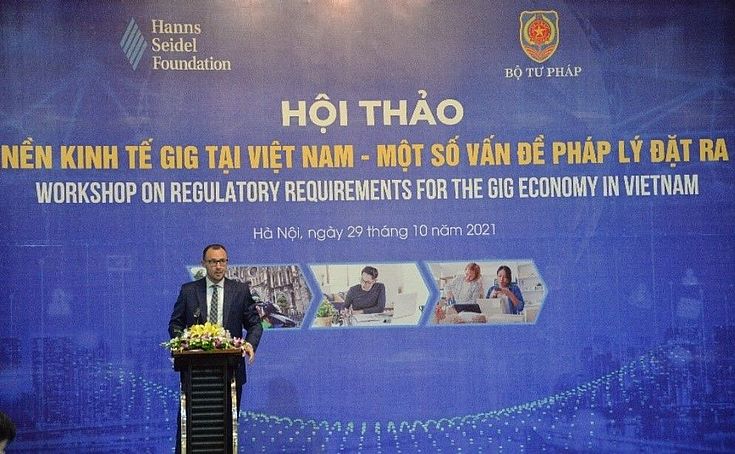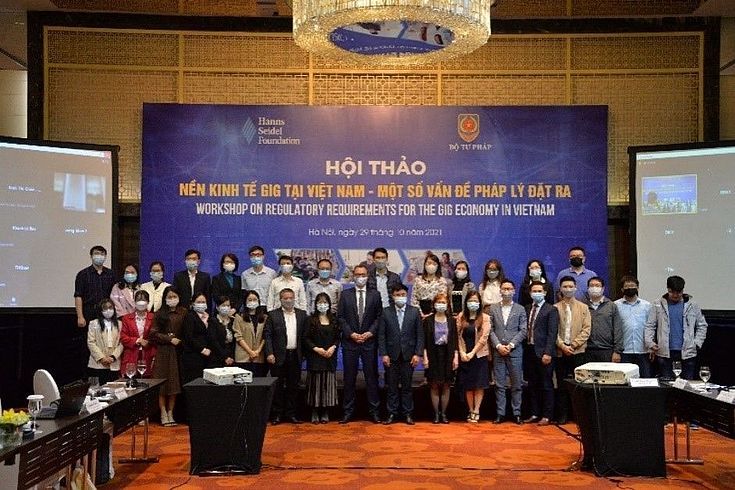Hybrid workshop on Gig Economy
Workshop on "Regulatory requirements for the Gig economy in Vietnam"
Mr Michael Siegner – Resident Representative of HSF Vietnam spoke at the workshop
HSF
In the recent years, Vietnam has seen a rapid and remarkable growth of the digital economy in trade, employment, and service delivery. As one of the phenomena of the digital economy, the Gig economy is an important driver of Vietnam economic growth and plays an essential role in changing the nature of the labour market. However, this economy model also raises concerns as it challenges the existing regulatory frameworks of labour relations and social protection mechanisms. As the Gig market grows significantly, even during pandemic time, the challenge for Vietnamese policymakers and officials is to find solutions to manage, govern and monitor this economic model. In order to support this process, HSF Vietnam, in its first official joint activity with the Institute of Legal Science at the Ministry of Justice, convened a hybrid multistakeholder policy dialogue on regulatory requirements for the Gig economy in Vietnam.
Offline and online participants of the workshop
HSF
Participants throughout the meeting agreed that the Gig economy is a new economic model in which a worker has several temporary jobs provided by digital platforms that pay him or her independently. The worker is free to work for multiple platform providers at the same time. Speakers from the Ministry of Justice's Institute of Legal Science assist participants in recognizing the triangle relationship between platform providers, service providers (Gig workers), and service users (Gig customers). The relationship's corresponding legislations are also described and analyzed. According to the speakers, policymakers must overcome five major regulatory challenges:
• Liabilities of platform providers
• Social security and protection
• Data ownership
• Taxation
• Labour dispute resolution
The workshop's reports and information equip legal experts and policymakers with a solid understanding of the gig economy. In order to meet legal criteria for the gig economy, Vietnam will need to further improve its civil liability legislative framework. The overall goal is to promote innovation while simultaneously safeguarding consumers and maintaining fair competition.


